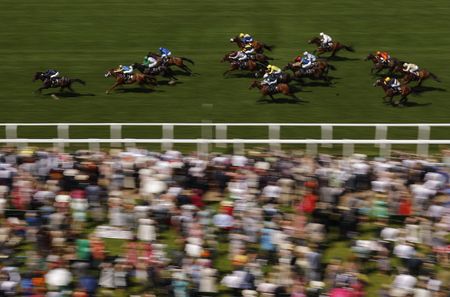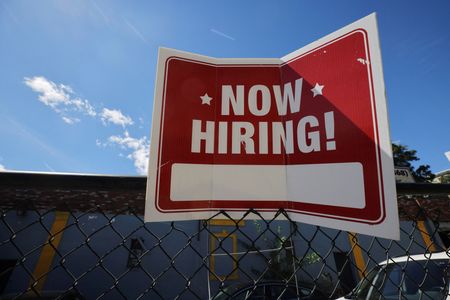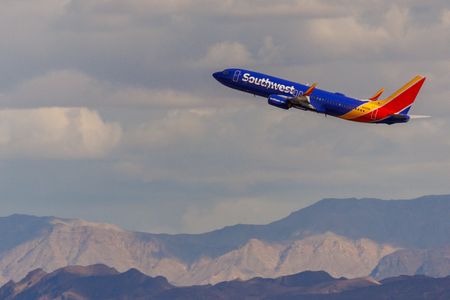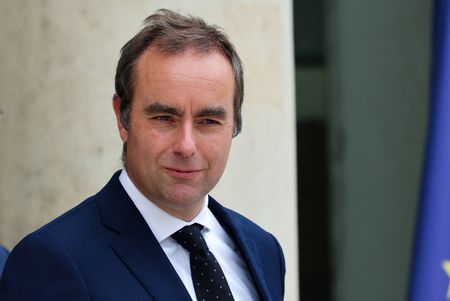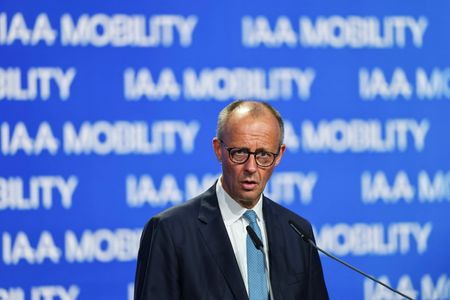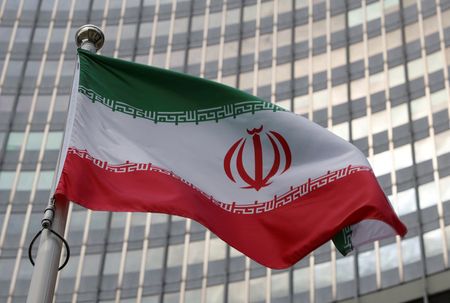By Virginia Furness
LONDON (Reuters) – No horse racing will take place in Britain on September 10 as jockeys, trainers and racecourses stage their first strike, protesting a government review that could raise taxes on remote bets. The stoppage marks the first time the sport has voluntarily halted racing in its history.
WHAT IS THE GOVERNMENT PROPOSING?
Britain’s Treasury is consulting on proposals to harmonise three separate remote betting duties, a move that the racing industry has said could lift the tax on horse racing wagers from 15% to 21% — in line with online casinos.
Finance minister Rachel Reeves needs to raise tens of billions of pounds in extra tax revenue in her second annual budget on November 26 but Labour pledged not to raise the main rates of the government’s biggest sources of revenue – income tax, national insurance contributions and value-added tax – meaning she is expected to look elsewhere.
Betting operators are concerned any harmonisation will raise tax rates to align with higher ones, damaging sports like racing which currently enjoys a lower rate.
Britain’s government said it had “no plans” to change a current tax exemption for bets placed at racecourses and that its wider review was aimed at “levelling the playing field and simplifying the system”.
“We know horseracing is part of the cultural fabric of the country, that’s why it’s the only sector that benefits from a government-mandated levy,” Exchequer Secretary Dan Tomlinson said.
“We are working closely with the industry to understand any potential impacts.”
WHY IS BETTING SO IMPORTANT TO RACING?
Horse racing in Britain receives much of its funding from a levy paid by bookmakers on their profits. In 2025 this is expected to amount to 108 million pounds ($146.59 million) and helps fund everything from prize money to industry recruitment and breeding operations.
When taken along with media rights and sponsorship, betting operators contribute over 350 million pounds annually to British Racing, the Betting and Gaming Council says. As a comparison, the English Football League receives 40 million pounds from betting companies.
The racing industry says any hits to betting company profits will mean bookmakers pass less money on to the sport. Betting companies agree.
WHAT’S AT STAKE
The British Horseracing Authority warns the government’s proposal would have a “catastrophic” impact on the sport and could cost the sector 330 million pounds over the next five years while putting up to 2,700 people out of a job in the first year.
That’s because betting operators could seek to offset tax rises through increasing prices, cutting bonuses, reducing advertising and focusing on other products, like online casinos, which are cheaper to run and more profitable.
The racing industry says this will lead to fewer race meetings, smaller prize pots and put jobs for trainers, jockeys and stable staff at risk.
Jockey Club chief executive Jim Mullen said the sport cannot afford the proposed tax harmonisation and that the “relatively paltry contribution” to Britain’s tax coffers will “decimate a cultural expertise in this country.”
WHAT IS THE INDUSTRY SAYING?
Jockeys, racecourse operators and trainers are united in their condemnation of the proposal.
James Sanderson, chief executive of Catterick Racecourse in North Yorkshire which sees around 38,000 racegoers across 26 race days a year, told Reuters that for small independent racecourses like his, the impact could be severe.
More than 50% of Catterick’s annual income comes from selling media rights to bookmakers – that is the right to broadcast raceday images and footage in betting shops and online – meaning it is largely reliant on betting companies to keep going.
“Some small racecourses are borderline viable,” he said. “If bookmakers pare back racing investment and turnover goes down… we will feel a real pinch and the only way we can deal with that is cost cutting.”
Harry Fry, a racehorse trainer from Dorset with around 40 horses in training for the winter season said that for small yards and rural businesses like his, the changes would “put our livelihoods in jeopardy.”
WHAT DOES THE BETTING INDUSTRY SAY?
The Betting and Gaming Council, which represents 90% of the regulated gambling sector including Entain and Flutter said it is “disappointed” racing has chosen to proceed with the strike and that its members were not consulted on the move.
“Carve-outs for one sport are misguided,” a spokesperson said in an emailed statement to Reuters. “Any further tax hikes on the regulated betting and gaming industry would not only hit horse racing, but also other sports that depend on operator funding.”
The trade body warned disruption risked “frustrating millions of racing fans” and “undermining the revenues that sustain jobs, communities, and the long-term future of the sport.”
($1 = 0.7368 pounds)
(Reporting by Virginia Furness)

